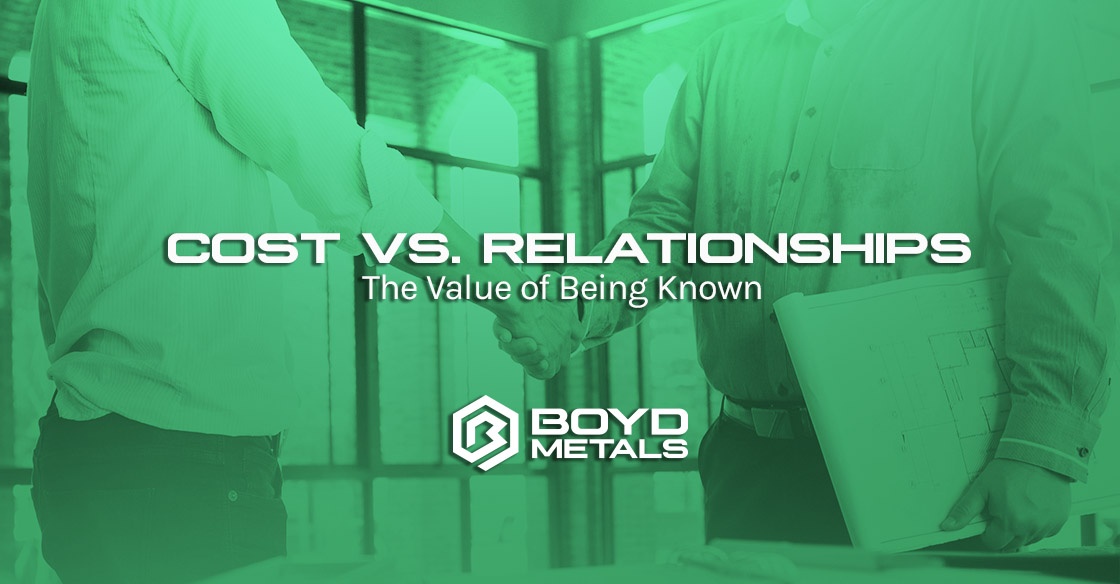Tommy is new to the world of business. With the passing of his father, he has inherited a struggling automobile parts shop and is now in charge of running the company. Aside from having no prior experience running a business, he is left with a lack of guidance and the overwhelming stress of getting things back on track.
The shop is pretty “old school” and has sustained itself over the years due to his late fathers work ethic and ability to build strong lasting relationships with his vendors and customers. Tommy’s father had bought from the same vendors for years. They knew him by name, and most of them have known Tommy since he was just a boy.
As a starting point, Tommy scours over profit and loss statements and begins to get a better understanding of all of the expenses of the business. He realizes that they are overpaying for a lot of their most commonly used materials. According to his calculations, a switch of vendors would be the change they need put them back on track.
So, what should Tommy do? Is it better to stick with those that you have good relationships with or make a switch for a lower cost?
Let’s help him out and break it down.
Lower Cost
The benefits of having a lower cost are pretty self-explanatory. In theory, if it costs less you will save money and the business will ultimately be better off. For Tommy, better off means a lot of weight of his shoulders.
However, switching to a new supplier may come with more drawbacks than he realizes. There's the time it takes to search for new vendors that will meet all of his needs, negotiation of the price (in which he has little to no leverage), and the uncertainty that the new vendors will be reliable and consistent.
Good Relationship
There are several benefits to keeping good relationships. They already know you and your business so they can predict your needs and they are invested in your success. Also, they have proven that they can be consistent and you already know that they’re reliable. And when it comes time to negotiate, you’ll have more leverage.
Of course, there are definitely issues with keeping things the way they are. The prices are too high, and the company is struggling because of it. On top of that, Tommy doesn’t know the vendors very well or how to talk to them the same way his father did. Who’s to say now that they aren’t dealing with his father, they won’t change the way they do business?
So, back to the question. Is it better to stick with those that you have good relationships with or make a switch for a lower cost?
The truth is, there is no one answer. It’s important to be mindful of the relationships that are working for you and those that are working against you. This is where good old-fashioned human intuition comes into play. You will have to let some of your business relationships go if they stand in the way of your progress or they aren’t living up to their side of the deal. Business is business and your company’s success is always the top priority.
That being said, business relationships can be one of your most important assets and can play a pivotal role in your company’s success. In business terms, this is called social capital and studies reveal the effects that loyal partners can have on a business’s success. Loyalty is created when both sides of a relationship are consistently doing their part. It is built on fairness, honesty, and trust. This isn’t to say that you won’t have issues or disagreements, but if the foundation of a relationship is strong and these strains are met with respect and empathy, they will most likely be temporary.
In the end, Tommy realizes that he would be better off to talk with the current vendors and see if they could work out a deal. Due to the strong relationships that his father created over the years, when Tommy approached his vendors he was welcomed graciously. They were happy to accommodate the changes necessary to help get business back on track and offered to give him guidance as he continued to learn how to run his father’s soon-to-be-thriving auto parts shop.
If your company isn’t partnered with a vendor that you can trust and rely on when things are difficult, it’s a great time to start working to develop those meaningful relationships. At Boyd Metals, our leadership is committed to being a reliable partner to the businesses that choose us as a vendor.
Steve Harvey, GM of our Fort Smith location, talks about this very topic.
“In the end, we're selling a commodity, so our people and service truly needs to make the difference in the market. When we create an environment where good people have a chance to grow and we empower them to make decisions, they take responsibility for the customers they serve.
The result is that our clients don't just get metal delivered. They get an industry partnership with people who have their backs, understand their deadlines, and are committed to mutual success. I think that is a tremendous benefit to our customer and I love to watch it happen every day.”




